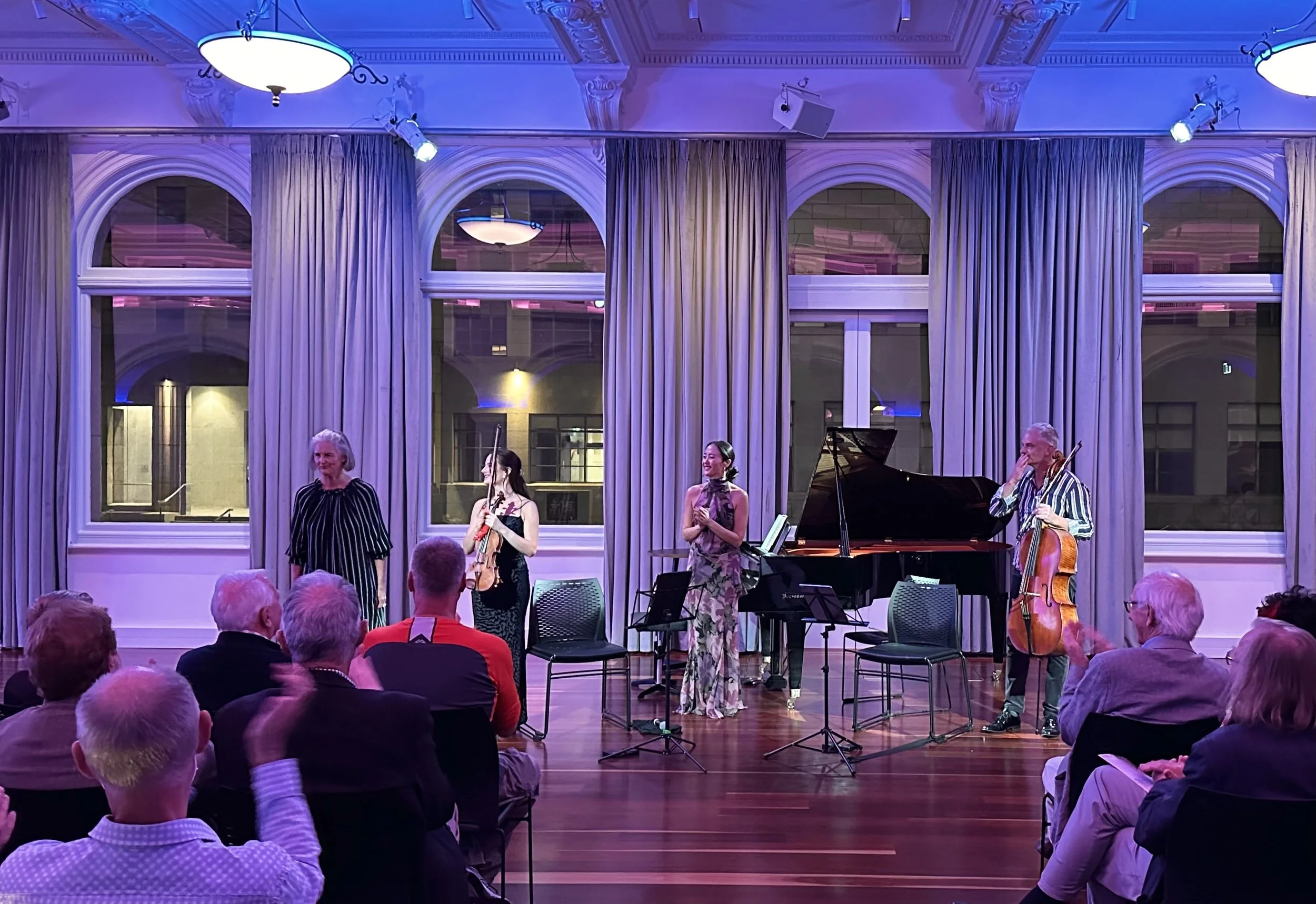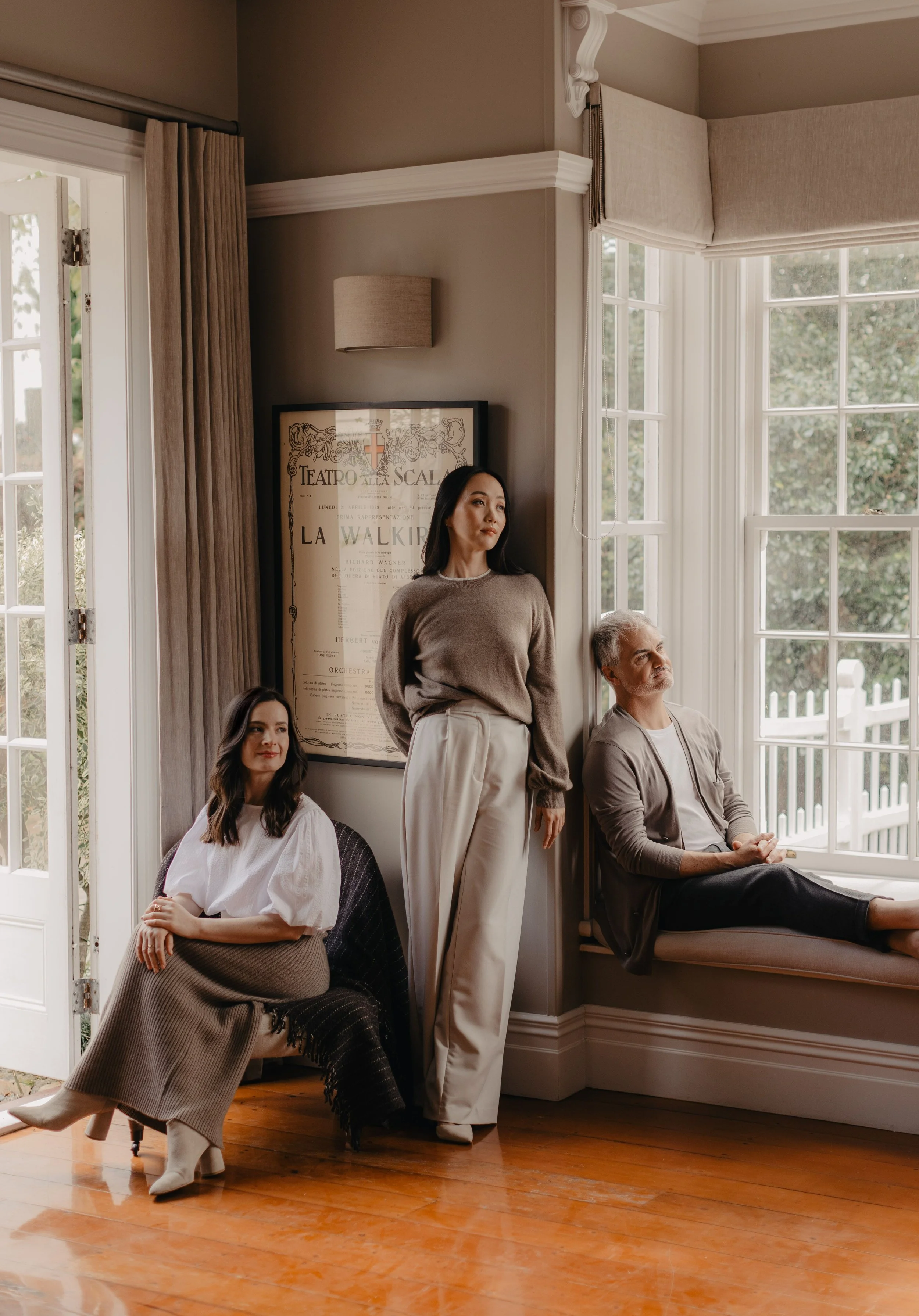Eve de Castro-Robinson premiere: a quiet centre in NZTrio concert
Composer Eve de Castro-Robinson - her new work, the willing air, is dedicated to composer Jenny McLeod
“It’s very quiet,” says composer Eve de Castro-Robinson, introducing her new work, the willing air, before its world premiere by the NZTrio in Wellington last week. Explaining the work’s sonic canvas, she talks about using vocal sounds as well as the instruments as a way of “humanizing” the sounds.
The new work acknowledges two women important in de Castro-Robinson’s life. The title came from a poem by her late mother – “Were we to meet in unexpected places/A sudden warmth would fill the willing air” – and she has dedicated the willing air to her friend and composing colleague, the late Jenny McLeod, who died in November last year. De Castro-Robinson describes McLeod as “always an inspiration”.
Mingary, The Quiet Place in Melbourne
Photo credit: Sarah Walker
The character of this beautiful piece is influenced by de Castro-Robinson’s discovery of a sanctuary called Mingary, The Quiet Place, a peaceful haven in Melbourne created for reflection and escape from the hectic city. The first of six movements is called The Quiet Place and opens with musician Ashley Brown carefully bowing the endpin of his cello. There are other gentle timbral surprises, a crystal glass as a little gong at the beginning of the third movement, Breathe, and whistling, deep chant-like humming and a range of string and piano effects creating an intimate, introspective atmosphere throughout.
After the magically feathery quality of The Bird’s Wing, the final Let there be silence uses muted strings, wraith-like traces of the lullaby melody from the Coventry Carol and whispering musicians. The ending is silent, the musicians sitting, eyes closed, hands crossed in meditative pose. At the premiere the audience held its collective breath before the applause.
Composer Eve de Castro-Robinson and NZ Trio receive applause after the premiere of the willing air in Wellington
The NZTrio’s Homeland 1 concert was another in a series of marvellously curated and splendidly performed programmes that is winning the ensemble a growing audience in Wellington. As usual, their interpretative unanimity and flexible musicianship were a delight. De Castro-Robinson’s new work was the quiet centre of the concert which opened with a full-bodied performance of the folky romanticism of Dvořák’s 2nd Piano Trio in G minor, Opus 26.
Two other works were new to most of the audience. American composer Daniel Temkin was present and introduced his Five Bagatelles, written early in his career as five Homages or, as the composer described them, youthful love letters to different composers. The intriguing short works acknowledged the spare modernism and lively folkiness of Britten, then Bartók in spiky, dissonant mode, the tonal and romantic style of Copeland, and increasingly experimental approaches from Dutilleux and Ligeti, sounds from inside the piano and harmonics and other ethereal effects from the strings. The audience was appreciative of this interesting repertoire choice.
After the hushed reverence of de Castro-Robinson’s work, Polish composer Mieczysław Weinberg’s intense Piano Trio in A minor Opus 24 was bold programming. The Jewish composer, a friend of Shostakovich, wrote the work during the horrors of World War 2 and his harrowing experiences and personal losses in Poland and Soviet Russia are distilled into this dark and passionate Trio. Angst-ridden faster movements give way to heart-breaking lyricism in the slow Poem and the whole work ends with a fugal howl of pain and rage in the Finale before closing with a deeply tragic chorale. The memorably dazzling performance by the Trio left me questioning why we don’t hear Weinberg’s music more often.
NZTrio - Amalia Hall (violin), Somi Kim (piano) Ashley Brown (cello)
…Homeland 1 concert is marvellously curated.
Photo credit: Katherine Brook
In a curatorial masterstroke, the Trio circled back to Dvořák in a genial and touching mood to end the programme with their own arrangement of his song Když mne stará matka/Songs my mother taught me. The well-known work gave its name to the whole deeply-satisfying programme, which is touring to four centres.
Homeland 1 Songs my mother taught me, music by Dvořák, Daniel Temkin, Eve de Castro-Robinson and Mieczysław WeinbergNZTrio (violinist Amalia Hall, cellist Ashley Brown, pianist Somi Kim) Wellington (March 2), Auckland and livestream (March 5), Norsewood (March 8) and Rotorua (March 10).




